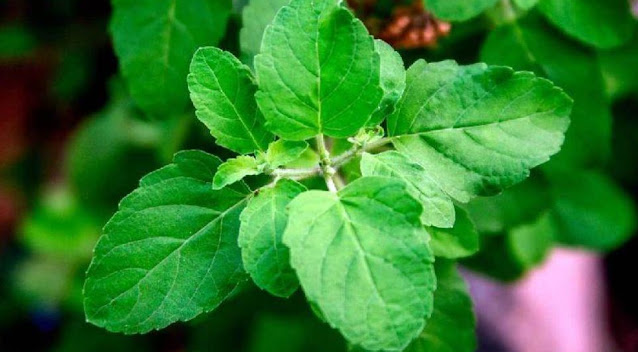"Food is our medicine; medicine is our food" - Aristotle
Prolonged work, unhealthy food, less sleep, more pressure are all putting our bodies and health at great risk. Diabetes, obesity, thyroid dysfunction, arthritis, cardiovascular diseases are all interlinked and can be controlled only by healthy eating. Greens, vegetables, fruits, and nuts are great sources of nutrition that empower the body with all the vitamins, minerals, fiber, and water. Green herbs in particular can fight a lot of disorders and keep you away from imminent health hazards. Instead of going out to buy them, you can grow these medicinal plants in your balcony with very little effort. There are a lot of reasons why you should grow and eat them on a daily basis!
Also read: History of Perfumes
Fenugreek (Fenugreek) - Growing fenugreek in a container is the easiest thing you can do. Choose a sunny spot, sow the seeds in a container and water it. Fenugreek seeds germinate in one to two days and at an interval of 10 to 15 days, the leaves come up and the pods are ready for harvesting. Chilly weather conditions may not be suitable for growing fenugreek.
All diabetic patients consume fenugreek leaves or fenugreek seeds to avoid fluctuations in blood sugar levels. A natural soluble fiber called Act galactomanan plays a key role in slowing the absorption of sugars in the bloodstream thereby controlling diabetes. Chronic digestive disorders, acid reflux, heartburn, dandruff, and hair loss can all be cured with regular intake of fenugreek leaves and seeds.
Bitter gourd (bitter gourd) - Another miracle vegetable that is completely exotic in taste! Since it is a vine plant, bitter gourd can be grown easily if you can arrange a small trellis in your balcony. It is a hot season crop but can also tolerate mild cold. Soak the seeds in lukewarm water before sowing. This process ensures early germination and also makes the seeds stronger.
Bitter gourd is often disliked by its bitter taste, but the goodness in the vegetable is indescribable. From weight loss to controlling blood sugar levels, bitter gourd does all this. Regular intake of it can also improve vision problems, liver and kidney cleanliness and boost the immune system. But remember that excessive consumption can cause stomach upset and hormone imbalance.
Coriander (Coriander Pudding) - Take some coriander seeds from your kitchen, divide them in two, sow them in a container and keep it in a sunny place in your balcony. Your coriander crop will be ready in a week! This is seriously as easy as this. There is a lot of pre-requisite sunlight for coriander plants. If your balcony gets a lot, just go ahead.
Coriander leaf fights bad cholesterol and improves the level of good cholesterol which promotes good health. Diabetic patients can control their blood sugar levels with regular intake of coriander. The rich iron element in leaves and seeds enhances bone marrow performance and treats anemia in women.
Stevia (Metha Patta) - is a 'sweet leaf' or 'sugar leaf' known primarily as stevia to replace artificial sweeteners. Only one leaf will make anything sweet without increased calories level in the food. Diabetics are now taking solutions in this miracle herb. Homegrown stevia may lack the deep sweet flavor that is commonly found but the leaves can definitely change your sweetener. You can either sow the seeds directly in a container or buy small stevia plants to transplant into your garden. Regular watering and six hours of sunlight are good for growing leaves.
Ripe stevia leaves are an excellent replacement for table sugar. You can use them in tea, coffee, juice and other beverages. When ginger or cinnamon is consumed, stevia corrects constipation and common digestive problems. Diabetic patients can make it part of their diet and control their sugar.
Tulsi (Tulsi) - Found in almost every Indian household, Tulsi herb can treat a wide range of health disorders. Sowing seeds directly in a container is the ideal way to grow basil. Always keep the soil moist by watering the plant regularly. It is an annual crop and production of leaves continues in all seasons.
Dried basil can treat chronic cold, cough and phlegm very well. A strong decoction of the leaves when eaten on a daily basis kills bacterial infections and enhances immunity. Purifying blood, fighting mouth ulcers, treating migraines and keeping infections away, basil does it all!

Comments
Post a Comment